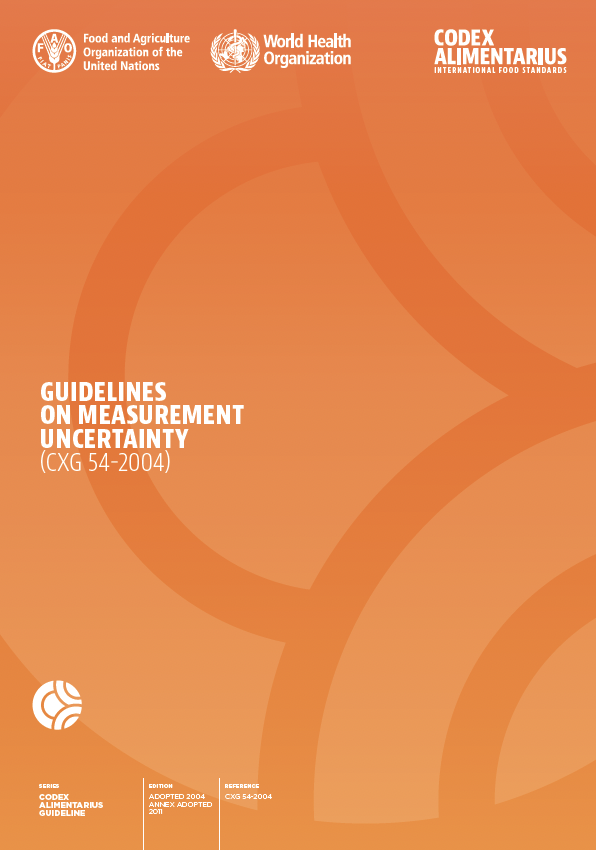Guidelines on measurement uncertainty (CXG 54-2004)

Abstract
Analytical measurement results in food control are used to assess whether food products meet relevant specifications. The accuracy of measurement results is affected by various error components, and it is important to ensure these errors are properly considered. Since the true value of the quantity being measured is unknown, errors cannot be known exactly. The focus thus shifts to an evaluation of the uncertainty associated with a measurement result. All measurement results have an associated uncertainty; the non-estimation of measurement uncertainty does not mean that there is no uncertainty. The evaluation of measurement uncertainty is required to establish the comparability of measurement results. Accordingly, measurement uncertainty is of utmost importance in analytical testing and subsequent decision-making.
This Guideline covers general aspects of measurement uncertainty for quantitative analysis, gives definitions of measurement uncertainty and related terminology and clarifies the role of measurement uncertainty in the interpretation of test results in conformity assessment and in specifying sampling plans for the inspection of lots.
General information
First published 2004.






